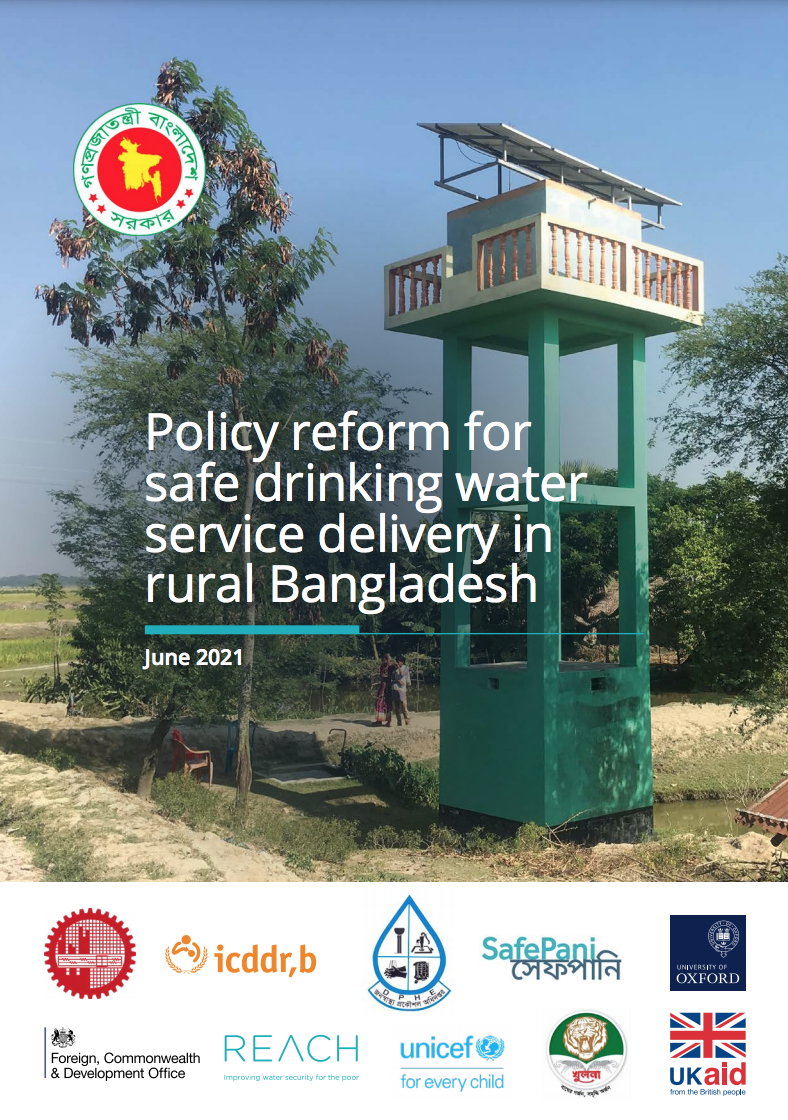Authors: Rob Hope, Alex Fischer, Sonia Hoque, Mohammad Monirul Alam, Katrina Charles, Muhammad Ibrahim, Md. Emdadul Hoq Chowdhury, Mashfiqus Salehin, Zahid Hayat Mahmud, Tanjila Akhter, Patrick Thomson, Dara Johnston, Syed Adnan Ibna Hakim, Md. Sirajul Islam, Jim Hall, Orlando Roman, Nassim El Achi, and David Bradley.
The Government of Bangladesh has provided global leadership in progress to improved drinking water access, with an estimated coverage of 98.5% of its 160 million citizens in 2019. However, the coverage decreases to 42.5% when service delivery accounts for indicators of water quality, proximity and sufficiency (UNICEF/MICS, 2019).
This report seeks to support the Government of Bangladesh in its review and reform of the 1998 National Policy for Safe Water Supply and Sanitation, and to introduce the ‘SafePani’ model as one response to achieving SDG 6.1 in rural areas. The design of the SafePani model is informed by collaborative work of the REACH programme with national and local partners in the coastal zone (Khulna) and central plains (Chandpur). Interdisciplinary research reveals intersecting challenges – hydroclimatic and water quality risks, public finance and private enterprise, and social and spatial inequalities – and highlights opportunities for reforms in policy and practice.

